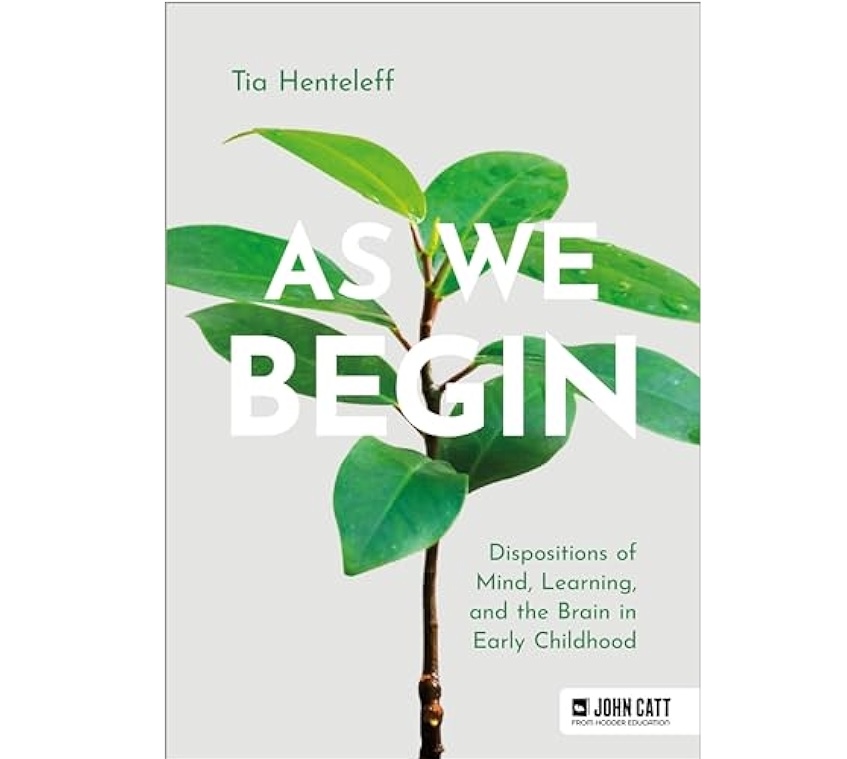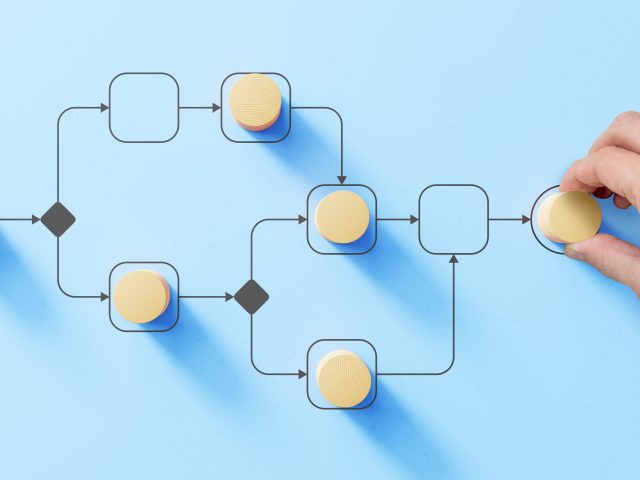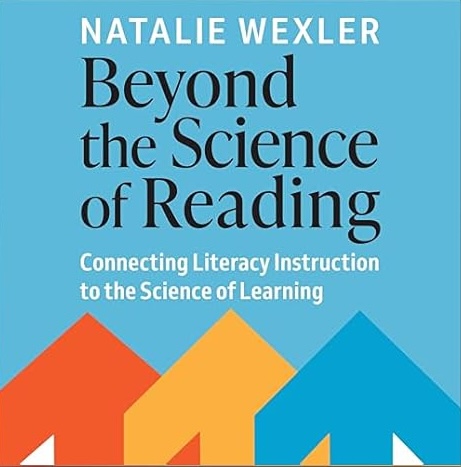
There’s a line quoted in Tia Henteleff’s As We Begin that lodged itself in my brain and hasn’t left since: “The beginning does not just matter during the beginning. The beginning matters to everything that comes next.” It’s such a simple truth, but one that, once seen clearly, transforms how you think about education—and honestly, how you think about life. At its core, As We Begin: Dispositions of Mind, Learning, and the Brain in Early Childhood is a thoughtful, research-driven, and deeply heartfelt inquiry into early childhood education. But this book isn’t just for preschool teachers or parents of toddlers. It’s for anyone invested in how we learn, grow, and become who we are. Henteleff draws from neuroscience, anthropology, pedagogy, and classroom experience. The result is a book that feels both intellectually expansive and personally grounding.

The throughline of the book is the concept of “dispositions of mind”—a term that might sound academic at first blush but is, in fact, beautifully human. These are the emotional and cognitive tendencies we bring to learning—like curiosity, persistence, and openness. Henteleff emphasizes that dispositions aren’t innate but developed through emotionally rich experiences, trusting relationships, thoughtful pedagogy, and environments that prioritize care and inquiry — through adaptive epigenesis.
What struck me most is how Henteleff keeps returning to the emotional foundations of learning—not as fluff or an afterthought, but as the scaffolding upon which all cognition is built. As quoted from Mary Helen Immordino-Yang, “Emotions are not just messy toddlers in a china shop… they are the shelves supporting cognition.” That image alone reframes so much. It reminds us that cognition is built on a foundation of emotional security and relational trust.
The book is divided into three parts: big ideas, foundational knowledge, and practical applications. This structure makes the complex research digestible without dumbing it down. There’s a section on the brain that could easily veer into textbook territory but instead feels like an invitation to understand how both kids and adults learn.
Henteleff is at her most persuasive when she invites teachers to become “teacher/researchers”—not in the publish-or-perish sense, but in the deeply human sense of observing, questioning, iterating. It’s a disposition, not a job title. And it makes the classroom feel like a site of shared inquiry rather than top-down transmission. There’s a humility in this stance that I find both rare and necessary. Teaching is an interactive dance, not a plug-and-play experience.
And let’s talk about play; an entire chapter devoted to the idea that play is not a break from learning—it is learning. She describes play as both research and rehearsal, a phrase that encapsulates her belief in its cognitive and emotional richness. In a world obsessed with achievement metrics, it’s radical to say: let them play—freely, messily, joyfully. That’s where the real work of becoming happens.
When I’m teaching Cognition or Sensation and Perception, I sometimes find myself in a state of flow—just playing with the ideas alongside my students. It’s like we’re all in this giant intellectual sandbox, testing how concepts stick together, finding joy in the rearrangement. That shared play is where deep learning emerges.
I found the tone refreshingly earnest. Henteleff isn’t offering a panacea; she’s offering a lens—a perspective that might feel ambitious or even aspirational in certain contexts. And yet, that’s part of the book’s power. It invites us to imagine what’s possible, not because it’s easy, but because it’s worth striving for. Even when the ideals feel just out of reach, they give us something valuable to aim toward.
If you’re an educator or a parent, this book might help you see your child’s world with fresh empathy. And as a curious human (my favorite kind), As We Begin is a compelling meditation on how we become who we are—together.
In the end, this book isn’t just about children. It’s about the conditions that allow any of us to learn, connect, and grow. And it’s a quiet, passionate argument for building those conditions with intention, compassion, and curiosity. Here’s to staying a little more playful, a little more reflective, and a lot more open to the developing dispositions that new “beginnings” might bring to “what comes next?”





